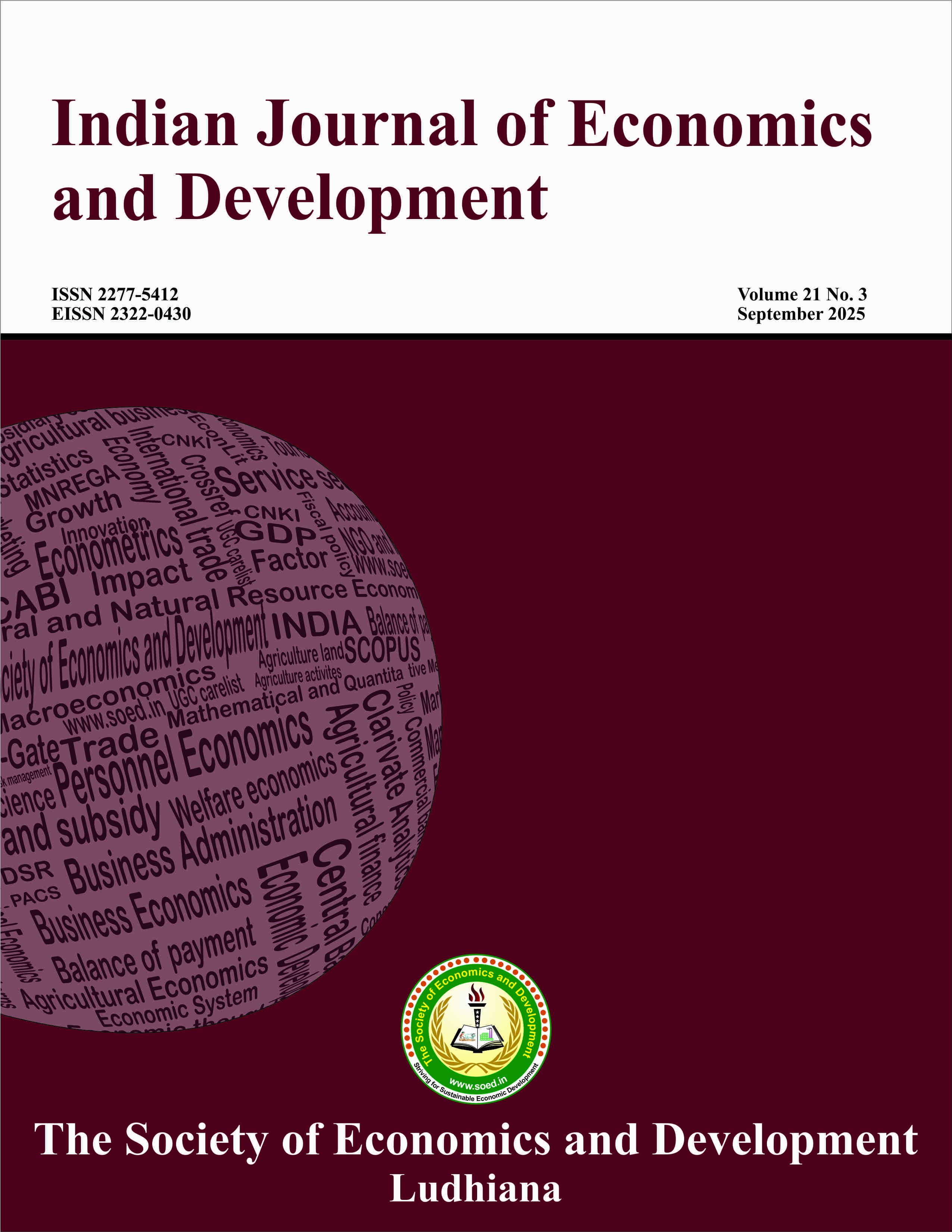Adaptation to Changing Climate by Farmers in Kerala: An Empirical Study

Price: ₹ 500
Author: Utpal Kumar De and Bindya Sara Babu
Author Address: Professor and Research Scholar, Department of Economics, North-Eastern Hill University, Shillong-793022 (Meghalaya)
Keywords: Adaptation to climate change, agro-climatic zones, crop diversity, irrigation access, mechanization.
JEL Codes: C19, C23, C46, O13, Q15.
Abstract
This study investigated farmers' adaptation strategies to climate change in three agro-climatic zones of Kerala. These zones were Wayanad (hilly), Pathanamthitta (valley), and Alappuzha (coastal). Based on primary data from 300 farm households, the analysis was done. Cropping diversity was assessed through the Modified Entropy Index, and adaptation extent through the Adaptation Index. Multiple, Robust, and Poisson regression analyses revealed significant regional differences in farming practices, including gender disparities, age-related trends, mechanization levels, education, and landholding size. Coastal districts exhibited higher fertilizer use and mechanization, while hilly areas relied more on traditional methods. Education, farm size, irrigation patterns, and technical knowledge significantly influenced adaptability. Region-specific interventions, such as gender-inclusive policies, improved irrigation systems, and enhanced technical capacity, were essential to strengthen climate resilience and ensure sustainable agricultural livelihoods in Kerala.
Description
Indian J Econ Dev, 2025, 21(3), 488-498
https://doi.org/10.35716/IJED-24367



